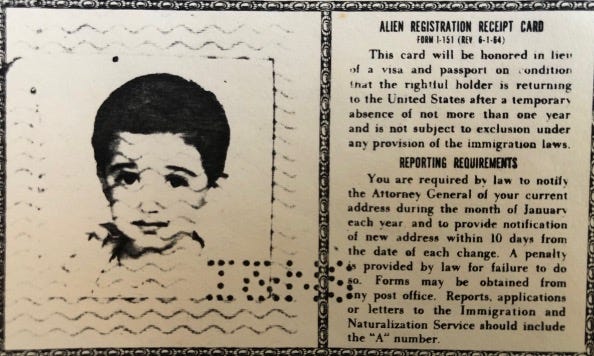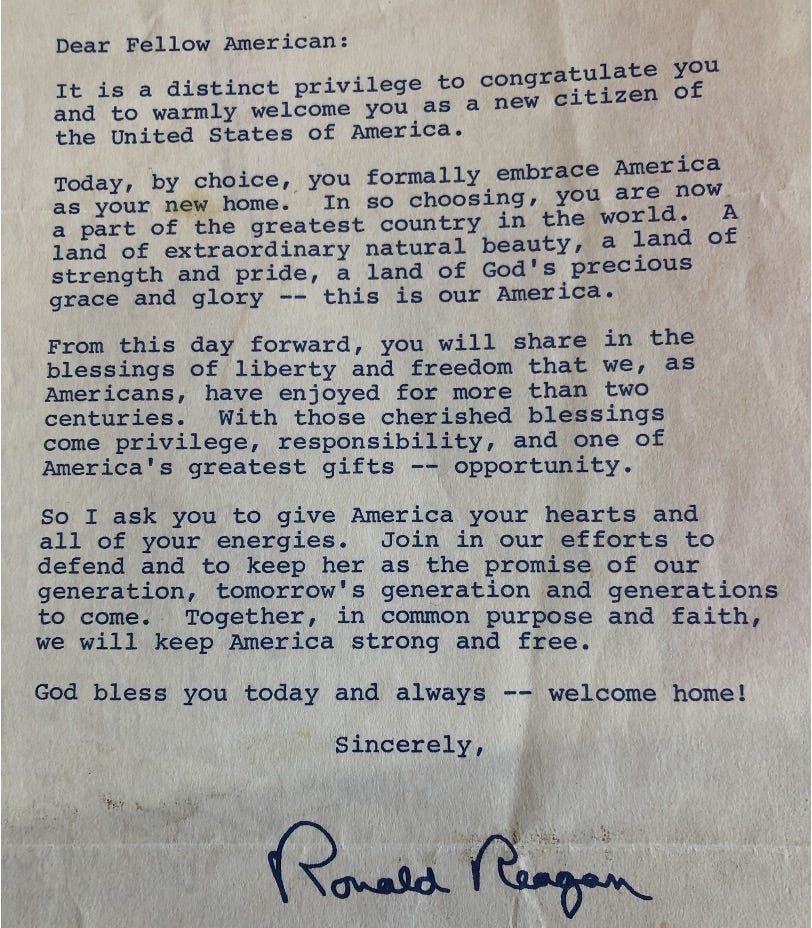My parents brought our family to the U.S. from Argentina in September 1964, seeking better economic opportunities. My father had a good job in Buenos Aires working as an architect for the Swift meat company, and our apartment was in a building owned by his parents that he’d designed. We had a good life. But one day, he got an inside tip that the company was about to go bankrupt. When the opportunity arose to return to teach at the university in Urbana, Illinois — where my parents had met — he jumped on it.

What we gained
I was always thankful that my parents had made that move. Our friends and relatives in Argentina were solidly middle class and owned their apartments. They seemed to be getting by. But life was tough there in more ways than one. Inflation tended to run rampant, and political instability was a way of life. We had more opportunities here, and life was easier. My mother, who already had a master’s degree, went on to get her Ph.D. in Urbana. We weren’t rich, but we didn’t worry about money. We had a good life.
And we had more freedom.
This was highlighted when Maria Luisa, a friend from Argentina, visited my parents in the DC area in the ‘80s, and they happened upon President Reagan making an appearance in the city. When my mother hurled insults in his direction, Maria Luisa freaked out. She was seriously frightened, and her fears weren’t unfounded; she was accustomed to minor actions like this being truly dangerous. One of our cousins who was a bit older than us had spent a few years in jail in the ‘70s for grassroots political organizing, and he only made it out alive thanks to some family connections. His sister had been forced to flee over rooftops from the military police. Both of them had to leave the country, as did many others.
While the political situation subsequently calmed down, over the years we kept hearing how difficult life was in Argentina. We knew we were in a better place.
What we’ve lost
I’m still thankful for the opportunities and ease I’ve enjoyed because of being brought to this country at a young age. But in recent years, I’ve wished more than once that my parents had taken us somewhere a bit more livable … like Norway? Or the Netherlands? To be honest, I don’t think I could take the cold and dark in either of those countries. But still …
This Independence Day, it’s hard to see beyond the loss of so much freedom and independence in our country — not to mention the freedom and independence that so many of our residents have never had.
On the heels of the one-year anniversary of overturning Roe, the Supreme Court has done away with affirmative action and the rights of gay people to be served by businesses. They’ve limited educational opportunities for those most in need. More slashing of freedoms is likely to come from that quarter.
The court is only exacerbating an already grim situation. Our students aren’t free to attend school without fearing they’ll be gunned down. Once they graduate and get jobs, most of them aren’t free to buy houses at today’s unattainable prices, and rent isn’t much better. Black and brown people aren’t free to go about their business without worrying that they’ll be targeted and even killed by police, not to mention constantly subjected to microaggressions and those of the less micro variety. Native people, denied opportunities since white people arrived here, weren’t even considered citizens till 1924. We incarcerate more people than any other country in the world — and of course, most of those are people of color.
When I became a U.S. citizen in 1983, I was handed this form letter signed by the same president my mother had berated on the DC streets:
At 22 and with no memory of any other country, the whole citizenship exercise seemed rather silly to me, and this letter only induced scorn in my young self. I didn’t believe then and don’t believe now that any one country is the greatest in the world, and I don’t see how invoking God in an official government document supports the separation of church and state. Forty years later, the letter seems even more artificial and hyperbolic. What liberty? What freedom? What thought for future generations?
What we still have
Of course, other countries aren’t perfect either. European nations may be way ahead of us when it comes to social safety nets, health care, renewable energy, biking, and so much more, but they’ve had their share of reactionary surges too. Income disparities and housing shortages are increasing worldwide. Fascism is on the rise around the globe. No place is safe from the effects of climate change.
And I’m well aware of the benefits I’ve enjoyed by living in the U.S. I’ve been able to change my career several times, something that’s harder to do in many other countries. I’ve moved from one side of the country to the other with ease. Like other Flower Children in the U.S., I’ve lived through times of great prosperity — and I’ve been in a position to benefit from that. My life has been good.
There’s no doubt that we’re currently living in crazy, scary times. The present is on a backward trajectory, and the future looks dark.
But fascism doesn’t tend to win. I don’t mean to minimize the collateral damage, which will be severe before we reverse the current trend. But there’s bound to be a backlash to this backward slide. People don’t like having their freedoms taken away.
For any hope of emerging from these times improved, what do we have? We have Olivia Julianna, who at only 19 years of age raised over $2 million for abortion rights after being body-shamed by Florida Republican Representative Matt Gaetz. She isn’t stopping there. Not to lay it all on young people, but they’re not staying quiet about the lot they’ve been dealt. On the other end of the spectrum, we have Third Act, a group of people 60 and over working to “change the world for the better.” We have coordinated efforts to engage people in grassroots actions like writing postcards to voters. We have a president who’s embracing his “Dark Brandon” persona and not holding back in his critiques of the Republican Party, which is in extreme disarray and can only win elections by using nefarious tactics.
It’s going to be a slog righting this ship, no doubt about it. But we have to try. We may even succeed.
As for Argentina, these days there’s much more freedom there. But economically and politically, turmoil is still the norm. I sometimes wonder what my life would have been like if we’d stayed there, and how growing up there might have shaped me into a different person than who I am today. I’ll never know.
But I do know that in spite of everything, I was lucky to be brought to the U.S. I hope that in the near future, we can realize our nation’s promise of opportunity — for all its residents. Maybe that’s a crazy hope. But I can dream, can’t I?






As Rosana's mother, I could not help but weep and smile and shake my head in agreement at this superb and thoughtful analysis she wrote. I feel like making a copy and framing it to have it close by forever!
Nice work, Rosana!